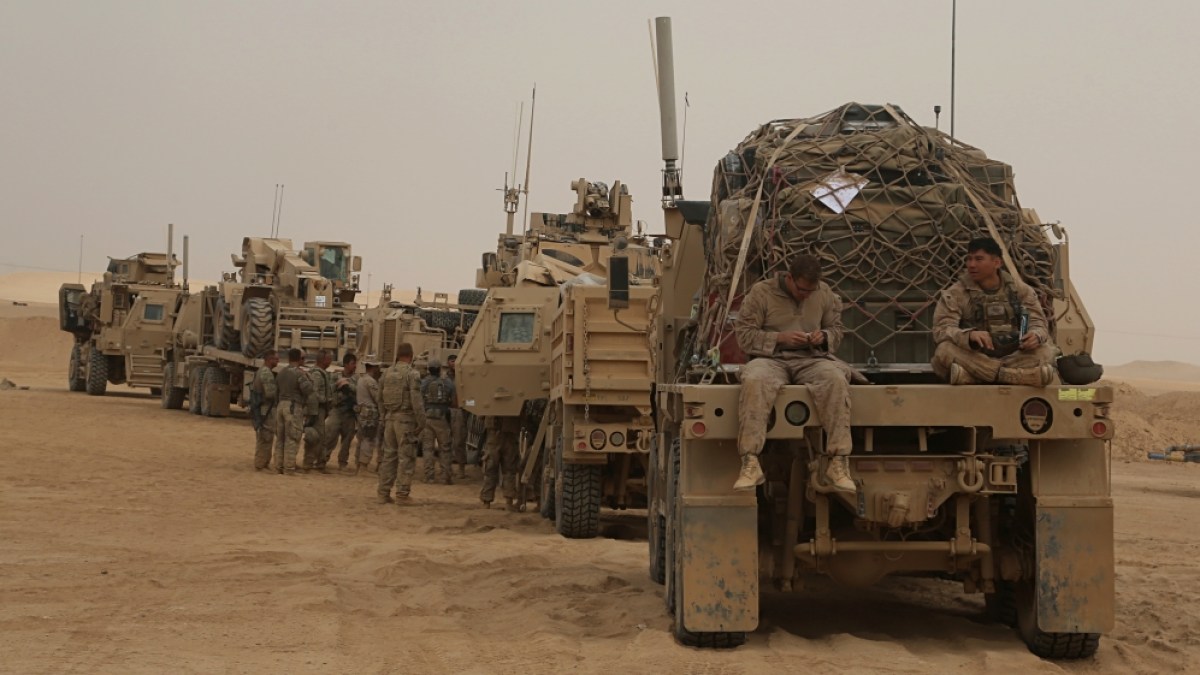
In a dramatic response to the escalating conflict between Israel and Iran, U.S. Defense Secretary Pete Hegseth announced on Monday that the U.S. military has made significant moves to strengthen its defensive posture in the Middle East. Hegseth's announcement, made via a post on the social media platform X, outlined the deployment of additional capabilities to the region aimed at safeguarding U.S. forces and maintaining the security of its allies.
The Pentagon has refrained from specifying the exact assets involved, but a U.S. official confirmed the movement of a substantial number of refueling tanker aircraft to Europe to provide flexible options for President Trump in light of the mounting tensions.
As the conflict between Israel and Iran has intensified, especially following Israel's airstrikes on Tehran, the U.S. military has been forced to adapt to a rapidly changing environment. The U.S. has also expedited the pre-planned deployment of the USS Nimitz Carrier Strike Group to the region.
This vessel, with a capacity of around 5,000 personnel and more than 60 aircraft, including fighter jets, is now positioned in the Middle East to enhance the U.S.'s defensive stance. The move underscores America's commitment to ensuring the safety of its personnel and interests in a volatile region.
In addition to the USS Nimitz, U.S. European Command deployed two destroyers to the eastern Mediterranean Sea on Friday. These warships, capable of defending against guided missile strikes, are integral to protecting U.S. assets in the area.
The Navy has since continued operations in the eastern Mediterranean to uphold U.S. national security objectives, especially as the confrontation between Israel and Iran enters its fourth day.
The deployment of U.S. military assets follows an alarming escalation in the Israel-Iran conflict, with both nations exchanging deadly missile strikes. The escalation began last week when Israel launched airstrikes on Iran after accusing the country of being on the brink of developing a nuclear bomb. The situation has rapidly deteriorated, with more than 220 deaths reported in Iran and at least 24 casualties in Israel.
The violence shows no signs of slowing down, with Israeli officials warning that the conflict could last "weeks, not days."
The White House, which has backed Israel's right to defend itself, has been cautious about increasing U.S. involvement. President Trump, while offering unwavering support for Israel, has distanced the U.S. from direct engagement in the conflict.

At a press conference on Monday, he sidestepped a question about the potential for U.S. military intervention, instead emphasizing the importance of dialogue with Tehran. Trump stated, "They should talk, and they should talk immediately," urging Iran to return to the negotiating table regarding its nuclear program.
The Trump administration’s position remains clear: while the U.S. supports Israel, it does not wish to become directly embroiled in the fighting. Trump's comments reflect a delicate balance of supporting Israel’s defense efforts while avoiding further military escalation in an already tense Middle East.
"We’re not involved in it. It’s possible we could get involved. But we are not at this moment involved," Trump reiterated in an interview with ABC News.
However, the escalating violence has prompted concerns about the broader regional implications, particularly the potential for the conflict to draw in the United States more directly. Israel has reportedly urged the U.S. to assist in eliminating Iran's nuclear infrastructure, which includes targeting energy installations, missile sites, and other key military assets.
Despite Israel's calls for increased military cooperation, the U.S. appears to be exercising caution in its response.

The Trump administration’s strategic posture towards the Middle East is under scrutiny as tensions rise. The president's decision to avoid direct military intervention at this point contrasts with his tough rhetoric. In a statement, Trump warned that any attack on U.S. personnel or assets would result in a response of "the full strength and might of the U.S. Armed Forces," a threat that highlights the United States' commitment to defending its interests in the region.
The ongoing situation in the Middle East is a reflection of the volatile and unpredictable nature of the region. U.S. military presence in the Middle East has been a fixture for decades, with nearly 40,000 U.S. troops stationed in the region, along with air defense systems, fighter aircraft, and naval vessels. This significant military footprint is a testament to the U.S.'s long-standing strategic interests in the Middle East and its role in maintaining regional stability.
While the U.S. military's current posture appears to be defensive, it remains to be seen whether the situation will escalate further, potentially forcing the U.S. into a more direct confrontation. As of now, the Pentagon's efforts are focused on providing support to Israel while avoiding direct military engagement.

The introduction of additional military capabilities, such as the deployment of tanker aircraft and warships, is a clear signal that the U.S. is prepared to act if necessary, but it is equally committed to exhausting all diplomatic avenues before escalating the situation further.
The unfolding events between Israel and Iran will undoubtedly shape U.S. foreign policy in the coming weeks and months. The actions taken by the U.S. military and the Trump administration will continue to be a closely watched development, as both Israel and Iran are key players in the broader geopolitical landscape.
The stakes are high, and the potential for further conflict remains ever-present as both sides trade blows in a conflict that has already claimed hundreds of lives.
For now, the U.S. continues to walk a fine line between supporting its ally Israel and avoiding a broader military confrontation in the region. The coming days will likely bring further developments, and the world watches closely as the Middle East remains on the brink of a larger conflict that could have far-reaching consequences for global security.




